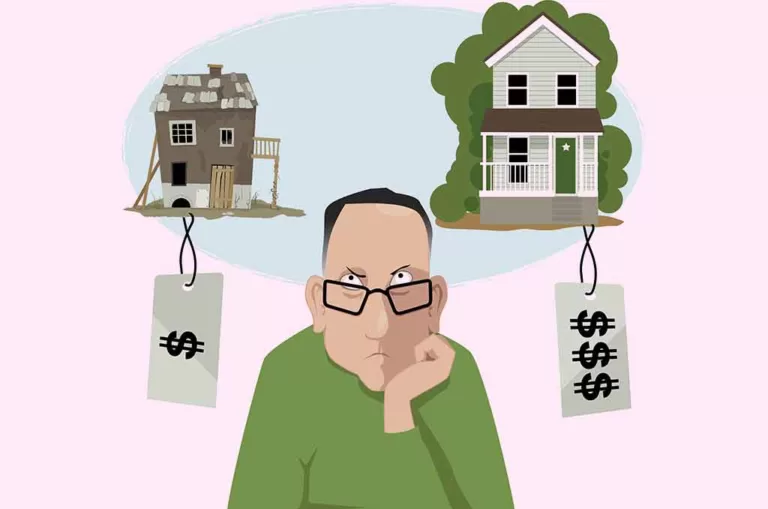As you consider buying a house, one important step is to determine how much house you can afford. The process for determining this number will take some time and effort but is important to complete before you look at other steps of the home-buying process like applying for a mortgage and looking for a house you want to buy.
Where To Start?
A good starting place for figuring out how much house you can afford is to look at your current monthly budget. How much are you paying for rent now? Is it easy or difficult to pay that amount? Do you have extra money in your budget that could go toward a mortgage? If you had to pay a mortgage, how much do you think you could pay and still afford your other bills and commitments?
That top number will be a starting point for you as you determine your budget for a housing payment, but it’s important to look deeper at your expenses and back up that number with facts, rather than just going with a gut feeling, which can sometimes be inaccurate.
Ch-ch-changes
Like the old David Bowie song goes, much of life is about changes, and that includes your costs when you move. You will need to determine whether any of your other bills and expenses will change when you buy a home in order to determine a true budget for doing so.
If you move from a smaller to a larger dwelling, some of your utilities will also increase. It takes more power to light, heat and/or air condition a larger home than a small apartment, and it’s important to account for these changes.
On the other hand, if you lived in an all-electric home in a colder climate and will now move to one that uses gas or oil, your energy costs are likely to decrease in the winter, because electric heat costs more than gas or oil. Moving from a cold to warm climate may also have an impact, although it may be minimal because you are paying more for air conditioning and less for heat.
Other budget items that may change include trash fees, water and sewer charges, storage fees, and transportation costs, if your move will bring you closer to or farther from your job.
Taxes And Fees
When you buy a home, you will have several costs that you don’t have while renting an apartment. First, you will need to pay property taxes, which usually amount to several hundred dollars. Renters don’t pay property taxes directly, but landlords often charge enough rent to cover their mortgage and property tax costs, so many renters do pay an equivalent amount whether they know it or not.
You will also need a homeowner’s insurance policy, which will pay repair and replacement costs for your home and the items in it, if and when your home sustains certain types of damage or is destroyed, such as by a fire or natural disaster, with some exceptions. These policies are typically more expensive than renter’s insurance, which only covers your items, and can cost between $50 and $100 a month or more for a larger house.
The other new cost you may incur is a Homeowner’s Association fee. These vary from less than $100 a month to $700 or more, depending on your home’s location. You will want to check whether any home you consider buying has homeowner’s association dues and how much they are before you commit to buy the home, to ensure that you can afford to pay the dues as part of your housing cost. You can also check what is included in the fees—often trash and recycling fees are included.
Calculating Percentages
Most mortgage companies go by what they call a 28/36 rule when deciding how big a mortgage payment you can qualify for, so it’s good to run some calculations yourself to get an idea of how much you can qualify for.
Looking at your total income, or what you project your total income will be when you apply for a mortgage, most banks will not qualify you for a payment that is more than 28% of your gross income. In addition, they will typically not qualify you for a payment that, when your mortgage and all other debt are added up, are more than 36% of your gross income.
You can figure this out by multiplying your gross monthly income by .28 and .36 to see what your numbers might be.
Examples: For yearly income of 100,000, your monthly income is $8,333.33 x .28 = $2333.33 maximum mortgage payment.
For the same income, $8,333.33 x .36 = $3,000 maximum mortgage payment + other debt payments.
These payments represent the total housing cost, including escrow items such as homeowner’s insurance, property taxes, PMI (more about that later), if applicable, and homeowner’s association fees.
There are some mortgage types that will allow payments to take up larger percentages of your income, but they usually have stricter qualifications, such as VA loans for veterans of the U.S. military or USDA loans for mortgages in rural areas.
FHA mortgages typically follow a 31/43 or even 33/45 rule, which make them easier to qualify for than other types of mortgages.
Examples for FHA 31/43 rule
For the same $100,000 annual income, your monthly $8333.33 x .31 = $2583.33 maximum payment.
If you have the usual consumer debt load of car payments, credit cards, and student loans, however, it could impact the house payment you can afford. Here is one scenario:
Debt List Monthly Payment
Car 1 payment $500
Car 2 payment $550
Student loans $350
Credit Card 1 $100
Credit Card 2 $185
Credit Card 3 $250
Total $1935
When you add the $1935 to the $2583.33 maximum payment, your total debt payments, known as debt-to-income ratio or DTI is 54%. Under FHA rules capping DTI at 43%, your maximum house payment would need to be $1815.
Need Help?
If you need help figuring out the maximum house payment you can qualify for, you may want to take the step of applying to be prequalified for a mortgage. A realtor or bank can help you with this process, and once you are prequalified, you will know exactly how much house payment you can likely get when you find a house you want to buy.
The realtor or bank will know about all the different types of mortgages and be able to tell you not only the maximum payment you qualify for, but will also help with our next step, which is converting that payment to a total purchase price so that you know how to shop for houses that you might want to buy.
Figuring Out Total Housing Price
Once you figure out the amount of house payment you will qualify for, it is not difficult to convert that into a total purchase price for a house. If you are not prequalified for a mortgage, you may not know exactly the interest rate you can get, which will change your number some, but you can easily get a range in which you can safely look.
The easiest way to do these calculations is by using an online calculator that does all the work for you. Two of the simplest calculators on the internet are the Mortgage Income Calculator and the Calculator Soup.
Both of these calculators will take your maximum monthly payment and calculate a total purchase price, based on an average interest rate for a 15 or 30-year mortgage. Most homeowners take a 30-year mortgage because it will have a lower monthly payment, but if you are an older homebuyer who may be retiring within 15 years, it can make sense to get a 15-year mortgage instead.
How Much Can You Put Down?
In order to use an online calculator, you will need to determine the down payment you plan to put down on your house. It used to be that most mortgages needed to have 20% down, but now you can put down as little as 3% and still get a mortgage.
If you put down less than 20%, however, you will usually pay private mortgage interest, or PMI. PMI is a monthly insurance payment that guarantees to pay off the mortgage if you default and don’t pay what you owe. PMI is usually between $100 and $200 on an average priced house, but can be more than $200 in some cases.
Most mortgage companies will only charge PMI until you reach 20% equity in the home, which is usually after 5 or 6 years of payments but can be as high as 9 or 10 years in some cases. When you have reached the 20% equity number, the PMI will be taken off your mortgage, but it is still included in calculating your maximum payment for qualification purposes.
Using the maximum payment of $1815 from the example above and a $20,000 down payment for a 30 year mortgage at $4.125%, the Calculator Soup site would say that you could afford a home that costs $325,000. This calculator does not include closing costs, which could be as much as $10,000, which would lower the price of the home you could afford to about $315,000.
If the interest rate you qualify for is higher, like 4.5% for instance, it would change the home you could afford to about $302,000.
These calculators will give you an idea of the prices of homes you could afford so that you can begin to look at inventory and see what is available. Your main choices for home purchases are existing homes and new construction, and most areas have some of both available, although not at every price point.
Looking At Homes
Once you have a purchase price or range to work with, you can do a search on any realtor site, like RedFin or Zillow, to see what homes are available in the area you want at the price you can qualify for.
You will want to consider whether you want to buy a home that is move-in ready or one that is more of a fixer-upper, because it needs work done in order to be updated to current style or needs repairs.
If you choose to buy a fixer-upper, you may want to look at prices lower than your maximum so that you have money to do the repairs after you purchase. Most existing homes need some repairs, even if it’s just to accommodate the new homeowner’s preferences. You may also need some money for new furniture if you have additional rooms to furnish or if your existing furniture doesn’t fit in the new space.
Keep in mind that there are often more costs to owning a home than to renting an apartment. If the AC breaks, you are the one who will have to pay the repairman or the cost to replace the unit.
It makes sense to look at your budget and figure out how to plan for these costs rather than just look at what the bank thinks you can afford. Having a monthly cushion or amount saved is a wise move for homeowners to avoid getting deeper into debt or need to live in less than ideal conditions.
When The Numbers Don’t Work
You may go through this process of figuring out how much house you can afford and be unhappy with the result. Perhaps your debts don’t allow you to buy a big enough home for your needs, or you can only qualify for a high interest rate mortgage, which will lower the purchase price you can afford.
It is possible that your credit score is low because of previous missed payments on debt, which would drive up your interest rates and disqualify you from some types of mortgages. And if you have just started a new job within the last two years, it may be harder to qualify for a mortgage (particularly if you were unemployed for a while before getting the job).
There are ways to solve these problems, but they typically take some time to accomplish. Before you spend that time, you should do the following two things:
1. Check your credit score with all three major credit bureaus – Experian, Equifax and TransUnion—to see if there are any mistakes that are making your credit score seem lower than it should be. If you do find a mistake, follow the dispute process and ask for it to be corrected. This should happen within 2-3 months and can make a big difference in your interest rate if you can bump your rate from poor to fair or fair to good.
2. Apply for a mortgage at one or more different banks from the one you tried the first time, to see if there are any differences that may give you more purchasing power than your original application.
Working At It
The fastest way to make the numbers work better for you is to pay off some of your debt, if you are able. Paying off debt will lower your DTI, but it will likely take at least several thousand dollars to make any appreciable difference.
Another way to decrease your debt payments is to sell one of your cars and pay off the loan. If you have any other assets with payments attached, like a motorcycle or a boat, these can also be sold, even temporarily, while you are in the homebuying process.
Asking your boss for a raise may be a long shot, but it’s worth a try. Anything you can do to increase your income may help your chances of qualifying for a bigger mortgage, including getting a second part time job or having your spouse get a part time job. It may take some months until these will qualify as income, but it will be worth the wait in many cases in order to get the home you really want.
You may be able to qualify for a bigger mortgage if you get someone to cosign the mortgage with you, but this is a big step. If you end up not being able to pay the mortgage, your cosigner will be responsible for it. In the event you foreclose on the house, your cosigner’s credit rating will be destroyed along with yours.
With some hard work and determination, you should be able to reach your dream of buying a home in a responsible and affordable way. Owning a home is worth the effort, and you are building equity as you pay your monthly expenses.










